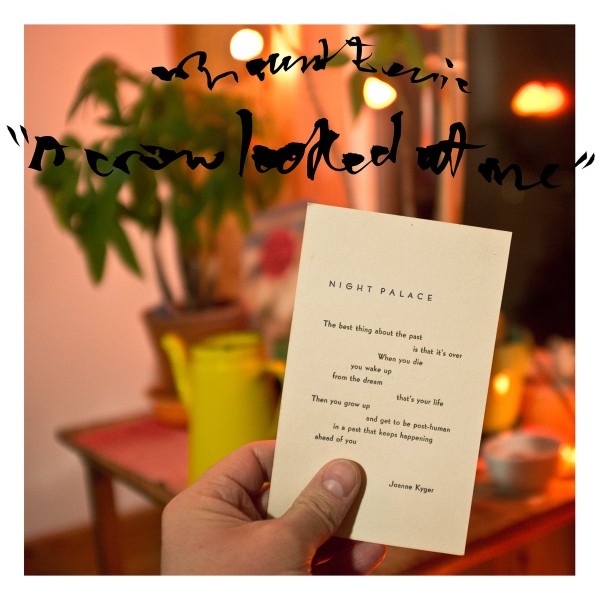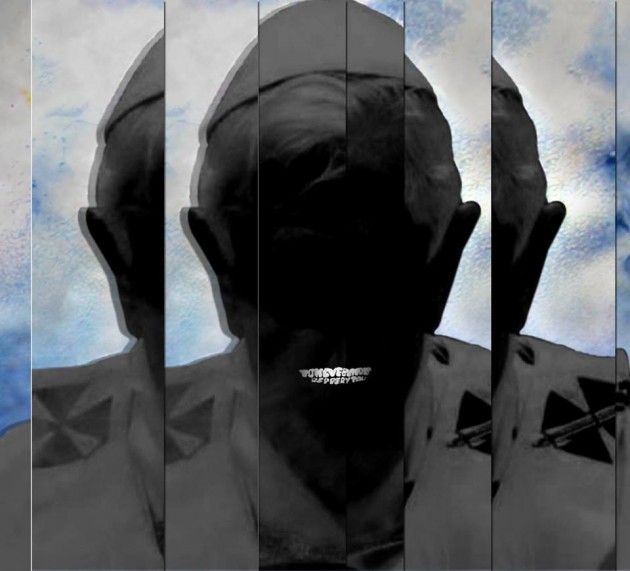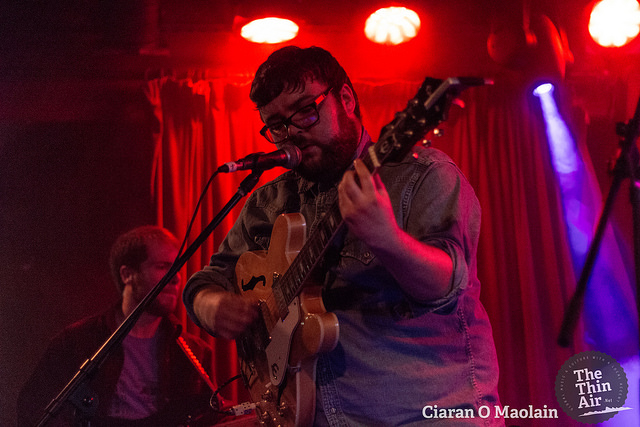You did not walk with me
Of late to the hill-top tree
By the gated ways,
As in earlier days;
You were weak and lame,
So you never came,
And I went alone, and I did not mind,
Not thinking of you as left behind.
I walked up there to-day
Just in the former way;
Surveyed around
The familiar ground
By myself again:
What difference, then?
Only that underlying sense
Of the look of a room on returning thence.
Thomas Hardy
In July of 2016, musician Geneviève Castrée died. She was survived by husband Phil Elverum and her infant daughter. She was 35 years old.
There are a wide range of words which one could use to describe Mount Eerie’s A Crow Looked At Me. The most pertinent of these is devastation. Despite being a mere eleven songs and running for a smidge over forty minutes, this is indisputably one of the most emotionally overwhelming albums ever pressed. Sidestepping the saccharinity of ‘Tears From Heaven’ or ‘I’ll Be Missing You’, this essentially amounts to a more traumatic rendition of Sun Kil Moon’s Benji. It’s the sound of losing all direction, hope, and meaning in a single instant and trying to reassemble what remains. Elverum’s stream of consciousness lyrics examine raw nerve after raw nerve and filter them through his downtrodden reprieve. Mostly, though, the album is a pitch-perfect study in grief and acceptance. It offers no simple answers, platitudes or moments of fetishised “profound sadness”. Instead, it provides a shoulder to cry on, a hand to hold and presence to make you feel less alone.
Throughout his career, Elverum has demonstrated his capacity as a wordsmith. He has always specialised in these odysseys of the minutia. But on A Crow Looked At Me, he has upped his performance tenfold. No topic is too sensitive or too insignificant for inclusion. There’s more to losing a loved one than the loss itself and this an idea which appears repeatedly. Phil ponders his friend’s perception of the death and his reaction and wonders when is time to shut up about it. He struggles to face the fact that she still receives mail and that the world is moving on as though nothing changed. He faces the crushing reality that there is nothing left but the pictures. The intricacy of his portraits gives the album a real heft with each possessing a calamitous power. Like an alchemist, Elverum conjures some concoction of words induces a paralysis that stops you in your tracks. The album is littered with them and repeat listens only bring out more and more.
Musically, the album is minimal and spare, which is for the best. Instruments are limited to acoustic guitars, pianos and the human voice. There is the occasional outlier, but mostly it’s these three which comprise the record. Crucially, there is nothing flashy or technically impressive about it. The music here is simply a backing track. While the guitar work is beautiful and the harmonies are spellbinding, they’re not the focal point. By denying the listener the ability to latch onto something other than words, he’s forced you to consider what he’s saying; to face this stark reality. You can’t hum the melody or pick out any clever little tricks, all you can do is focus on those brutal, unflinching words.
This album occupies the same space as Requiem For A Dream or Lilya 4-Ever. You should experience it, but you’ll never want to go back. It’s simply too tough. But like those films, A Crow Looked At Me has a humanist message. The intent of this isn’t to wallow in the pain of what’s happened. It’s about trying to carry on. While he may not find the strength to do it, his words and his emotions offer a life buoy for those in the similar situation. To paraphrase Eyedea, you’re lonely, but everyone’s lonely so at least you’re not alone. Despite being entrenched in death, this is a celebration of life. One that urges you to grab onto everything you hold dear and appreciate it while you can. Never forget, there’s no sunset for John Wayne. Life doesn’t end like a well-written narrative. It’s messy and ambiguous. Worst of all, things are mostly left unfin
Will Murphy






